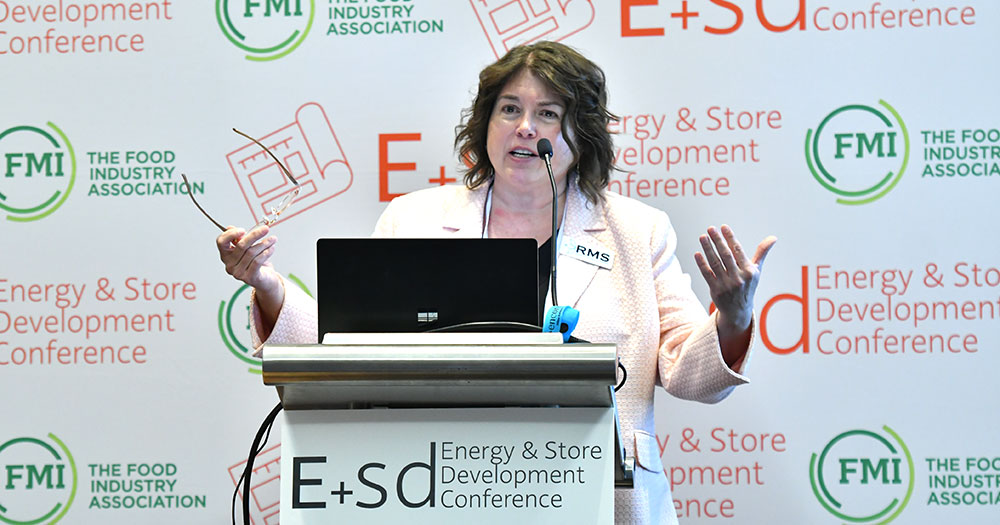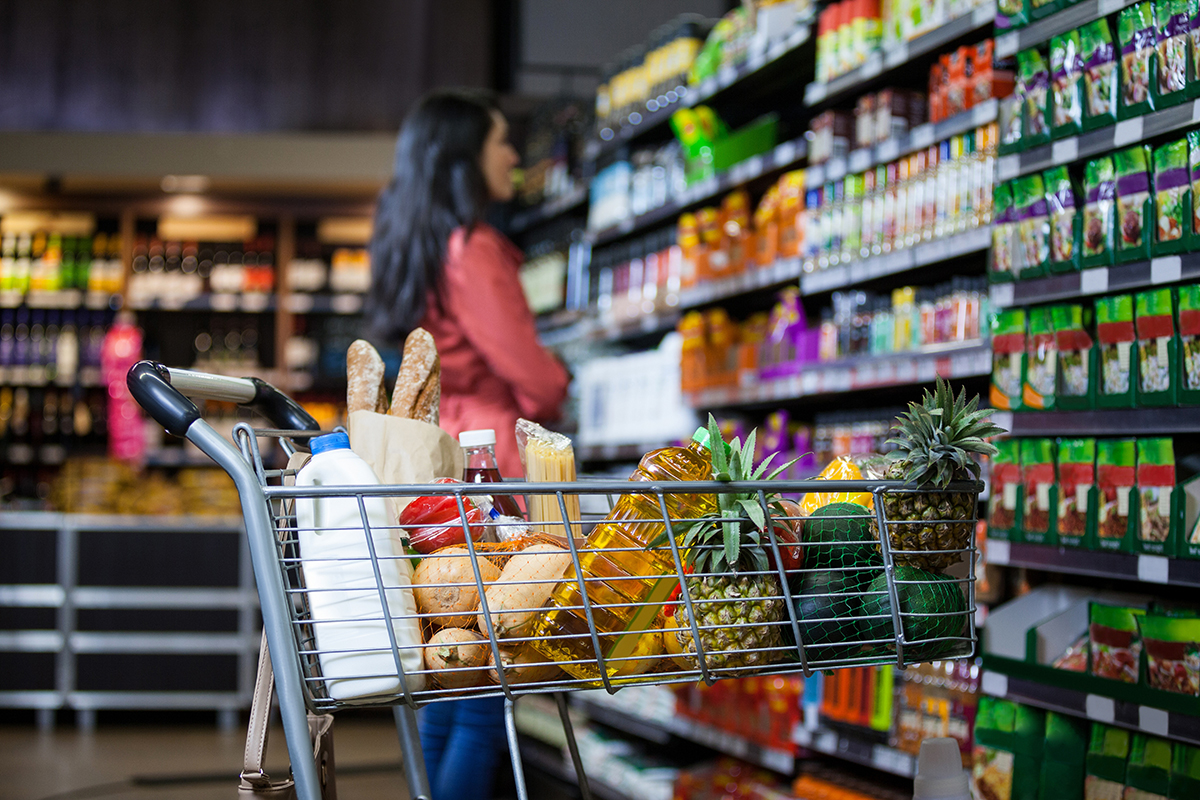By: Marjorie DePuy, Senior Director, Supply Chain and Sustainability, FMI

It’s Earth Week—a time of year filled with climate announcements, ribbon-cuttings for facilities powered by cleaner energy and photos of community tree-planting events. It’s also a time for FMI to focus on just a few of the exciting sustainability collaborations happening in our industry. Overall, the food industry is making progress on sustainability and there is new energy powering corporate action on climate while global imperatives urge us forward.
Water
Dow, FMI product supplier member AB InBev and associate members Ecolab and Microsoft are a few of the founding members of the Water Resilience Coalition, an industry-led coalition of the United Nations Global Compact’s CEO Water Mandate. The Coalition is calling on business leaders to take collective and quantifiable action to reduce water stress by 2050. Signers include: The Coca-Cola Company, Heineken, Danone and Woolworths.
Carbon
Guidehouse, Mars, Inc., McCormick & Company, and PepsiCo recently announced the formation of the Supplier Leadership on Climate Transition collaborative, an initiative to help engage suppliers in climate action. In its first year, the program will focus on helping suppliers understand the foundations of greenhouse gas reductions in their own businesses, including core knowledge of how to calculate their own GHG footprints and to set their own science-based targets. FMI and Ceres support the initiative.
Climate and Food Waste
Last fall, FMI joined seven other agriculture, forestry and civil society groups in launching the Food and Agriculture Climate Alliance. This group is explicitly focused on converting its policy proposals into legislative language that Congress can act upon. FMI brings consumer insights on food loss and waste and other topics into the farm to fork alliance.
On a related note, there is currently no standardized methodology for determining food loss and waste at the consumer level. The newly announced Household Food Waste Measurement Project aims to accelerate the development of a food waste measurement methodology. The Foundation for Food and Agriculture Research and The Kroger Co. Zero Hunger | Zero Waste Foundation have committed $2 million toward the $3 million grant award.
Actively Targeting Shrink
FMI is pleased to partner with the ECR Community’s Retail Loss Group, which hosts practical working sessions to address key industry topics around shrink, forecasting, food waste cost models and more. The sessions on May 19 and20 feature academic research or business case studies and are open to FMI members (retail and wholesale, CPG associate and academic).
- Setting KPIs for Food Waste and Markdowns – Where should the budget sit, stores?
- Store Forecasting – Retailer Case Study on Using Machine Learning to Sell More, and Waste Less.
- True Cost of Food Waste – A new costing model presented by Professor Lisa Jack.
- Retailer Case Study – Towards Zero Food Waste.
- Smart Labels for Freshness Guarantee – The X5 Business Case.
- Managing Surplus Food – Tesco & Olio Success Story.
Convergence of Trends
We learned through FMI’s 2020 U.S. Grocery Shopper Trends that 59% of younger consumers — Gen Z and Millennials — say environmental sustainability is important to eating well, compared to only 41% of older consumers. Yet in data from IFIC, despite an interest in sustainability, more than six in 10 consumers find it hard to know whether their food choices are environmentally sustainable. The pressure is on—not just to find healthier and more sustainable methods of stewarding our resources, but to communicate meaningful metrics and tell authentic sustainability stories about the brands and the business.
New Sustainability In the Food Industry Report
FMI has released a new report that outlines our resources relevant to the current sustainability landscape in the food industry. Sustainability in the Food Industry presents a current picture of broad industry efforts, consumer priorities and sets the table for what may lie ahead. This report highlights topics from ethical sourcing and animal welfare to energy use, packaging and food waste reduction efforts.
Download Sustainability In the Food Industry
What is your company engaged in? Please let us know and watch this space for additional ways to get engaged in FMI conversations around sustainability.


 Industry Topics address your specific area of expertise with resources, reports, events and more.
Industry Topics address your specific area of expertise with resources, reports, events and more.
 Our Research covers consumer behavior and retail operation benchmarks so you can make informed business decisions.
Our Research covers consumer behavior and retail operation benchmarks so you can make informed business decisions.
 Events and Education including online and in-person help you advance your food retail career.
Events and Education including online and in-person help you advance your food retail career.
 Food Safety training, resources and guidance that help you create a company food safety culture.
Food Safety training, resources and guidance that help you create a company food safety culture.
 Government Affairs work — federal and state — on the latest food industry policy, regulatory and legislative issues.
Government Affairs work — federal and state — on the latest food industry policy, regulatory and legislative issues.
 Get Involved. From industry awards to newsletters and committees, these resources help you take advantage of your membership.
Get Involved. From industry awards to newsletters and committees, these resources help you take advantage of your membership.
 Best practices, guidance documents, infographics, signage and more for the food industry on the COVID-19 pandemic.
Best practices, guidance documents, infographics, signage and more for the food industry on the COVID-19 pandemic.
